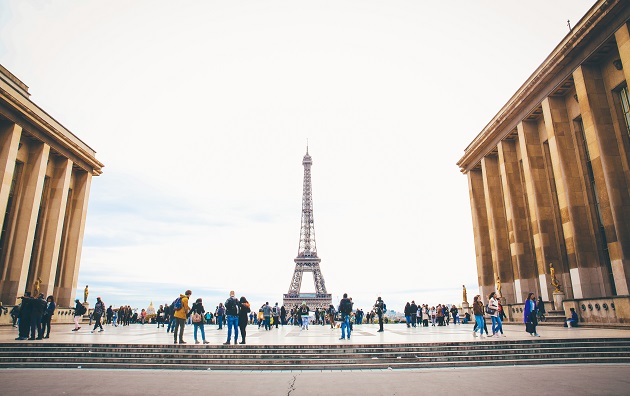We also remember that all are made in God’s image, with infinite value. But also all sin. Salvation is only because of grace and faith. Therefore, we can stand against the idea of “them and us” and act as bridge builders and reconcilers. We can seek to take the bitterness out of public debate. We have a ministry to help individuals and communities address their fears and hurts in healthy ways. And we are called to defend and care for the most vulnerable, even those that society despises.
WHAT VISION CAN CHRISTIANS OFFER?
David Landrum answers this question; Europe needs a biblical, hope-filled vision for how things can be better. There are and will be other contributions that Evangelicals can make; for example, Manuel Suarez reminds us of the importance of basing society on a developed civil society, rather than on bureaucracy. David Landrum writes about a civil public square, a vision that the European Evangelical Alliance has been advocating for several years. It is where rights, responsibilities and respect enable people to live together with their deepest differences. It is where “there is maximal freedom for the Gospel to be proclaimed and lived out, and in which there is maximal respect for all who accept or reject the claims of the Cross.” In a civil public square, people are free to be themselves but understand the need to be good neighbours with those that live or believe differently to them. Our nations and continent are pulling themselves apart because we do not know how to reconcile the differences that there are and will be in the future. A civil public square is essential if our societies are to hold together.
How the vision would work is explained in the Global Charter of Conscience, written by Evangelical sociologist Os Guinness, with input from others, including EEA and Heiner Bielefeldt, former UN Special Rapporteur on Freedom of Religion. It is not about compromising each other’s distinctiveness. As Article 14 states, “…there is always a responsibility to find common ground across the differences without compromising the differences that matter.” Instead, it injects Judeo-Christian values back into society, expecting us all to respect others and be guardians of their rights, as well as our own.
David Landrum’s final challenge to us is that Evangelicals prioritise public leadership that is inspiring, equipping and nurturing Evangelicals into leadership roles in every sphere, where they can serve but can also challenge and speak hope.
DEPRESSION OR HOPE?
This set of papers will inform but they could leave us depressed if we do not remember who is Lord of history. Our God laughs at those who conspire against Him (Psalm 2:4) and brings rulers to nothing (Isaiah 40:23). Nothing can stop His Kingdom growing until it is fully fulfilled at the end of time. He calls His Church to play its part in demonstrating signs of this Kingdom, to intercede and to be hope-filled Good News People. EEA trusts that these papers will point us towards hope.
Julia Doxat-Purser, Socio-political representative of the European Evangelical Alliance (EEA).
This is the first article of the Issachar Project papers produced by the EEA. Re-published with permission.
NOTES
1. or European Community before December 2009
2. Lesbian, Gay, Bi-sexual, Trans or Inter-sex.
3. The rule of law, applying equally to all, is an important aspect of democracy. It is protected by an independent judiciary to which all citizens should have access.
Source link : https://evangelicalfocus.com/eea-issachar-project/3885/what-has-happened-to-europe-politics-issachar-project-eea-julia-doxat-purser
Author :
Publish date : 2018-10-05 07:00:00
Copyright for syndicated content belongs to the linked Source.
